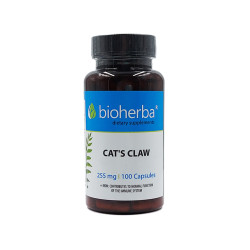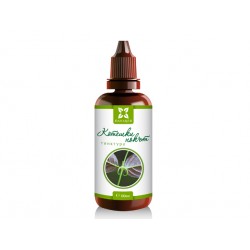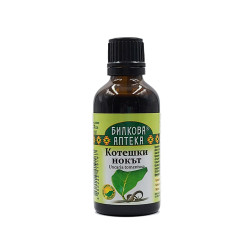Tips and useful information are from Julia Stoyanova, a Bulgarian biologist, author of books, the latest being "Coronavirus and Seasonal Flu".
This is the name of the plant Uncaria tomentosa. The cat's claw is a liana that grows in the tropics of Central and South America. The plant wraps around trees, reaching up to 30 meters in length. Spikes grow on it with a curved shape like nails. Hence the name "Cat's Claw". South American Indians are traditionally known as one of the healthiest people in the world. They rarely suffer from cancer or infectious diseases. The secret of their immunity is due to the use of cat's claw and other typical for the region plants used for centuries.
Why is the cat's claw an immunomodulator №1 in the world?
It contains two different groups of compounds from the group of alkaloids, in particular pentacyclic oxynadol alkaloids (POA) or tetracyclic oxynadol alkaloids (TOA). The groups have different effects on the body.
Pentacyclic oxynadol alkaloids (POAs) have mainly immune-boosting functions:
- strengthen the immune system by destroying many types of pathogenic microorganisms living in the digestive system
- support T-immune cells, which have been reported to have lower levels in active athletes
- increase the efficiency of macrophages (type of immune cells)
- increase the anti-cancer capabilities of the immune system on the principle of regulating apoptosis /programmed cell death/
- participate in the regulation of cytokine production - the so-called. mediators of immunity
- improve the body's overall ability to deal with viral infections
Other health benefits: Cat's claw has been suggested to have antioxidant activity.
In addition to alkaloids, cat's claw also contains flavonoids, triterpene compounds, organic acids, and tannins. They are due to the biological effects of the plant, namely: antioxidant, antiseptic, spasmodic, hypotensive, hepatoprotective, choleretic, diuretic and detoxifying action. Cat's claw is useful for increasing the body's resistance to infectious diseases, in the treatment of arthritis, bursitis, diseases of the gastrointestinal tract, respiratory tract, prostatitis, inflammatory diseases of the female reproductive system, menstrual disorders.
Contraindications
Pregnant women or nursing mothers. Children under the age of two. People with organ transplants. People with autoimmune diseases and allergies, blood clotting problems or tuberculosis, people with acute malignancies should also not use the herb.
It is not advisable to take cat's claw in combination with hormones or insulin.
Recommended dose
The concentrations of alkaloids in the extract determine the doses. At 4% alkaloid concentrations, doses range from 250 to 1000 mg / day.
Most often, cat's claw is used in immunostimulants, antioxidants. It is less common in some digestive enhancers to eliminate pathogenic strains of bacteria in the stomach and intestines.
A good combination for potentiating the immunomodulatory effect is the combination of cat's claw with echinacea.






